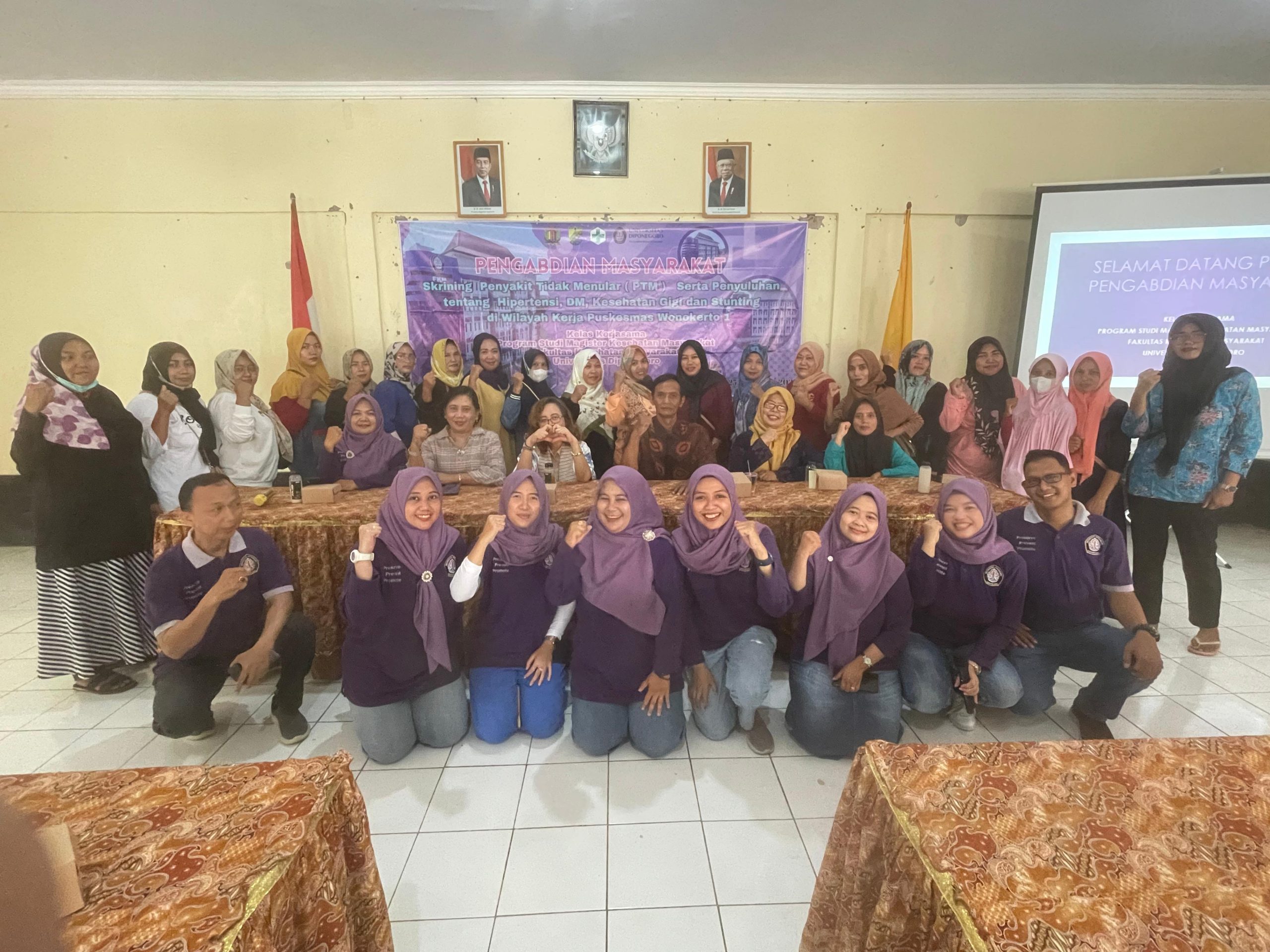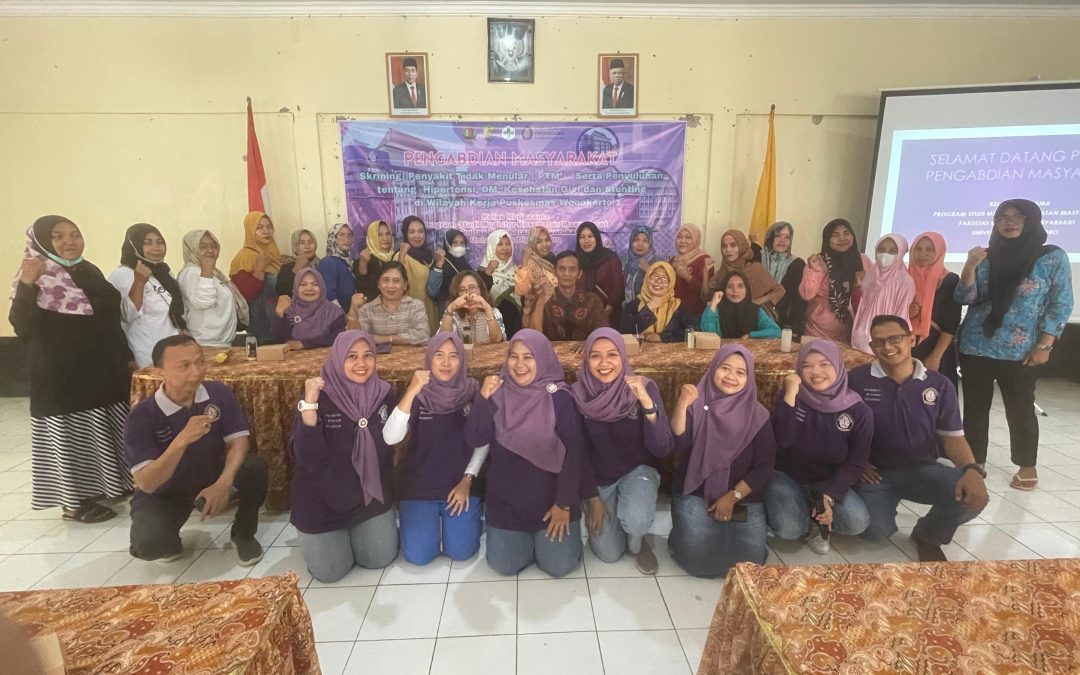The Master of Public Health (MKM) students from the Faculty of Public Health, Universitas Diponegoro (FKM UNDIP), in collaboration with Pekalongan, carried out a hypertension detection, dental health, and stunting assistance program in the working area of Wonokerto I Subdistrict, Pekalongan Regency. The activity took place at the Wonokerto Subdistrict Hall on Saturday (25/11). In her opening remarks, Dr. Dra. Ayun Sriatmi, M.Kes, as the Head of the Activity Organizer, expressed hope that the community service provided by the students could enhance the knowledge and awareness of the community regarding non-communicable diseases. Mr. Arifin, representing the Subdistrict Head of Wonokerto I, expressed gratitude for the concern shown by MKM FKM UNDIP students for the residents who had the opportunity to receive assistance related to non-communicable diseases. “This assistance program greatly helps the residents of Wonokerto I in terms of non-communicable diseases. Fortunately, a considerable number of residents attended, allowing them to share the information acquired during today’s activities,” said Mr. Arifin

The event was attended by 75 participants and supported by 15 students and 6 staff members from the Wonokerto I Subdistrict Health Center in Pekalongan Regency. Various activities were conducted, including providing services for checking blood sugar levels and blood pressure as a screening method for non-communicable diseases. Education on maintaining oral hygiene, particularly in identifying the sources of bad breath and their management, was also delivered. Participants were given practical demonstrations on proper tooth brushing techniques. Education on hypertension and stunting focused on understanding the causes and prevention methods. It was recommended that the Wonokerto I Health Center continue to monitor participants who showed abnormal screening results, especially those exceeding normal standards, and evaluate participants’ understanding of non-communicable diseases, oral health, and stunting, particularly in detecting symptoms and risks of stunting

